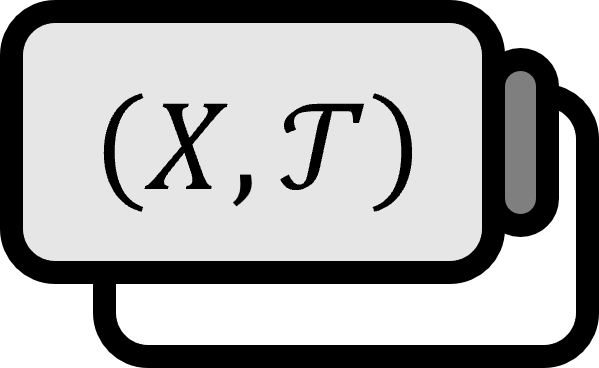Bolzano-Weierstrass Property and Compactness of Accumulation Points
Definition 1
If every infinite subset of a topological space $X$ has its limit point in $X$, then $X$ is said to have the Bolzano-Weierstrass property or to be compactly accumulating points.
Theorem
- [1]: Every compact space is a compactly accumulating points space.
- [2]: If $X$ is a metric space, then $X$ being compact is equivalent to being compactly accumulating points. $X$ is a metric space, then it being compact is equivalent to it being compactly accumulating points.
Description
For example, $[a,b]$ is compactly accumulating points, but $(a,b)$ is not. Also, if we consider an infinite subset like with $$ P = \left\{ 3 , 3.1 , 3.14 , 3.141, 3.1415, \cdots \right\} $$, because of $\pi \notin P$, it is not compactly accumulating points. $\mathbb{R}$, having such subsets, is naturally not compactly accumulating points.
Interestingly, despite the name, the definition doesn’t mention compactness at all. Just from the name, one might think it’s a special case of compact spaces, but in fact, only the opposite theorem [1] holds true.
Another significance of compactly accumulating points is theorem [2], which can be useful in proving some metric space is compact. Proving a metric space is compact ensures the uniform continuity of continuous functions, which goes without saying is beneficial.
Munkres. (2000). Topology(2nd Edition): p178. ↩︎
